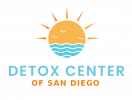Dextromethorphan, commonly known as DXM, has emerged as a significant concern among parents, healthcare providers, and educators due to its popularity as a recreational drug among teenagers. Originally approved by the FDA in 1958, DXM is found in over 70 over-the-counter (OTC) cough and cold medications, designed to suppress coughing safely and effectively when used as directed. However, its misuse for hallucinogenic effects poses serious health risks and has led to increased scrutiny and calls for education and prevention.
What is DXM?
DXM is a cough suppressant ingredient in many OTC cold medications, including well-known brands like Robitussin, Delsym, and Coricidin. It’s effective in managing symptoms of the common cold or flu by reducing activity in the brain that causes coughing. When used as prescribed, DXM is considered safe with minimal side effects. However, the substance becomes dangerous when consumed in large doses, leading to serious side effects and even addiction.
DXM Misuse and its Effects
Teenagers and young adults seeking a cheap and easily accessible high misuse DXM by consuming it in significantly higher doses than recommended for cough suppression. This misuse can cause a range of adverse effects, including hallucinations, delusions, paranoia, cognitive impairments, and in some cases, dangerous behavior due to disconnection from reality. The euphoria and altered states of consciousness associated with DXM misuse are sometimes compared to the effects of more potent drugs like PCP and ketamine, highlighting its potential for harm.
Trends in DXM Abuse
Although DXM abuse peaked around 2006, it remains a concern due to the ease of access to OTC medications containing the drug. The majority of DXM misuse cases involve adolescents between the ages of 14 and 17, a critical developmental period when teenagers are more likely to experiment with substance use. This demographic shift underscores the importance of monitoring and education to prevent DXM misuse among youth.
DXM Overdose and Addiction
Overdose incidents involving DXM often require medical intervention, including emergency department visits. Symptoms of an overdose can range from respiratory and cardiovascular problems to neurological issues like seizures and coma. Addiction to DXM is a growing concern, with individuals displaying a pattern of compulsive use despite facing negative consequences. Treatment options for DXM addiction include evidence-based methods such as cognitive-behavioral therapy and family therapy, aimed at addressing both the substance use disorder and any underlying mental health issues.
Preventing DXM Abuse
Prevention efforts focus on education about the dangers of DXM misuse, monitoring teenagers’ access to OTC medications, and fostering open communication about the risks associated with recreational drug use. Parents and caregivers play a crucial role in prevention by keeping track of medications in the home and being vigilant about their children’s online activities, as some websites provide information on how to misuse DXM.
DXM’s status as an easily accessible OTC medication underscores the need for comprehensive strategies to prevent its abuse among teenagers. Education, monitoring, and open dialogue about the risks of recreational drug use are essential components of a holistic approach to addressing this issue. By understanding DXM’s potential for misuse and implementing preventative measures, we can protect young individuals from the harmful effects of this over-the-counter hallucinogen.








